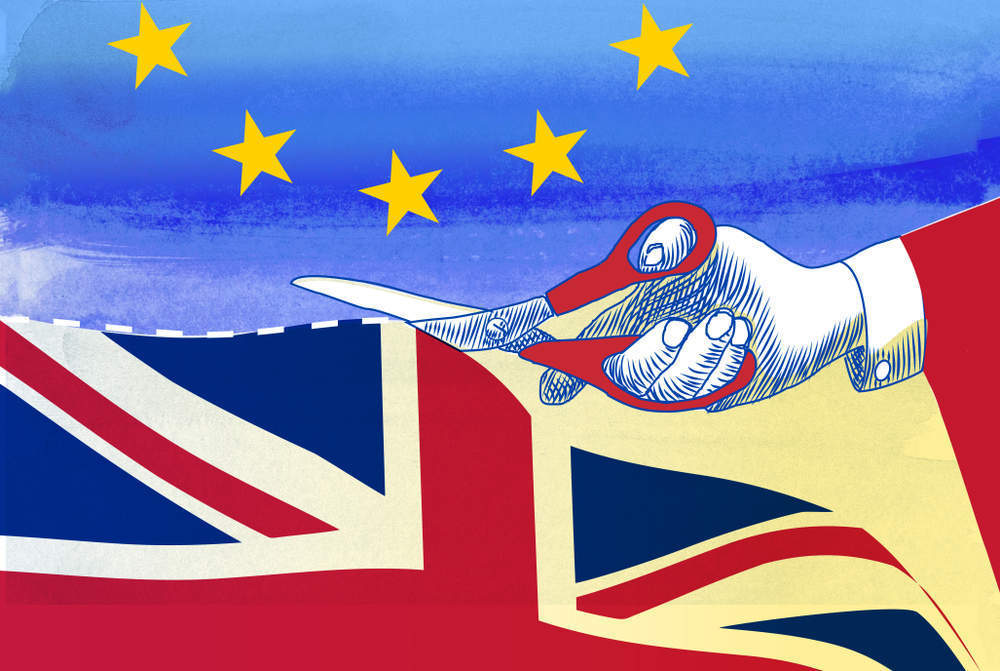
The economic effects of the UK leaving the European Union look set to fall most heavily on those who voted for Brexit, according to a leaked government report.
The report examines the 15-year impact of the UK either joining the European Economic Area (EEA), signing a Canada-style free trade agreement (FTA) or falling back on the World Trade Organisation (WTO) rules.
In each scenario in the forecasts growth would be lower: by two percent, five percent and eight percent respectively, than the currently forecast over a 15-year period.
The estimates are from the EU Exit Analysis – Cross Whitehall Briefing which BuzzFeed News disclosed last week and are in a section of the document not previously seen.
When the economic predictions are broken down, the regions with the highest percentage of leave votes, saw the biggest hit to growth under a FTA.
[visualizer id=”146192″]The largest predicted hit to growth if the UK signs a FTA was in the North East of England at 11 percent where some 58 percent of voters chose Brexit in the 2016 referendum, according to BBC data.
How well do you really know your competitors?
Access the most comprehensive Company Profiles on the market, powered by GlobalData. Save hours of research. Gain competitive edge.

Thank you!
Your download email will arrive shortly
Not ready to buy yet? Download a free sample
We are confident about the unique quality of our Company Profiles. However, we want you to make the most beneficial decision for your business, so we offer a free sample that you can download by submitting the below form
By GlobalDataThe predicted negative effect on growth would increase to 16 percent if there is no deal and the UK is forced to revert to WTO rules. Growth would be three percent lower if the UK joins the EEA.
Both the West Midlands and the North West are forecast to see growth lower by eight percent if a FTA is signed. The West Midlands was the region with the highest proportion of leave voters, 59.3 percent, and the North East also saw a significant 53.8 percent of votes for leave.
If there is no deal then the growth figure for the West Midlands will be 13 percent than if the UK were still in the EU. If the UK joins the EEA, the hit to growth will be 2.5 percent.
London, which had the second lowest percentage of leave voters (40.1 percent) after Scotland (38 percent), had the lowest predicted hit to growth of two percent. London’s growth would be reduced by 3.5 percent in a no deal scenario and just one percent lower if Britain joins the EEA.
The exceptions to this pattern are Northern Ireland and Scotland.
Northern Ireland had the third lowest percentage of leave votes at 44.2 percent, but saw, like the West Midlands and the North West, an estimated eight percent economic hit to growth if an FTA is agreed with the EU.
Scotland is predicted to see a six percent reduction in its growth in the case of a FTA, the fifth highest negative growth of the twelve regions, however, only 38 percent of its population voted leave.
The report also contained predicted sector-by-sector change in growth under a FTA based on the forecast effect of non-tariff barrier costs on British businesses.
The chemicals industry would fair worst, with growth lower by 12.5 percent, followed by the motor and retail industries, with growth down by eight percent and 6.5 percent respectively.
Agriculture growth would be off by one percent in the event of an FTA with the EU.
Some have suggested these predictions are optimistic as they are based on assumptions that deals would be agreed with China, India, Australia, New Zealand and the Gulf states.
They also assume the UK would continue to benefit from the EU-Canada trade agreement and the US-EU deal.
| Region | Predicted slowdown (%) | Leave vote (%) |
| West Midlands | 8 | 59.3 |
| East Midlands | 5 | 58.8 |
| North East | 11 | 58 |
| Yorkshire and the Humber | 5 | 57.7 |
| East | 5 | 56.5 |
| North West | 8 | 53.7 |
| South West | 2 | 52.6 |
| Wales | 5.5 | 52.5 |
| South East | 5 | 51.8 |
| Northern Ireland | 8 | 44.2 |
| London | 2 | 40.1 |
| Scotland | 6 | 38 |
What was said:
A Government spokesperson said:
This document does not represent Government policy and does not consider the outcome we are seeking in the negotiations.
As ministers clearly set out in the House of Commons, this is provisional internal analysis, part of a broad ongoing programme of analysis, and further work is in progress. We are seeking an unprecedented, comprehensive and ambitious economic partnership – one that works for all parts of the UK. We are not expecting a no-deal scenario.
Background:
This is not the first leak that has interrupted the Brexit negotiations period.
At the end of January documents from Brussels discussing the negotiating processes were leaked.
The leaked papers disclosed that EU leaders want to be able to “suspend certain benefits” such as “participation in the internal market” if the UK fails to abide by certain laws and regulations during the transition period after signing the Withdrawal Agreement.
It is also sought to prevent the UK from challenging EU rules in the European Court of Justice.
In October 2017, details of British prime minister Theresa May’s private discussions with European Commission president Jean-Clean Juncker where she allegedly “begged for help” on Brexit and said “she had no room for manoeuvre” and was described as “anxious.. despondent and discouraged” were leaked to the German press.




